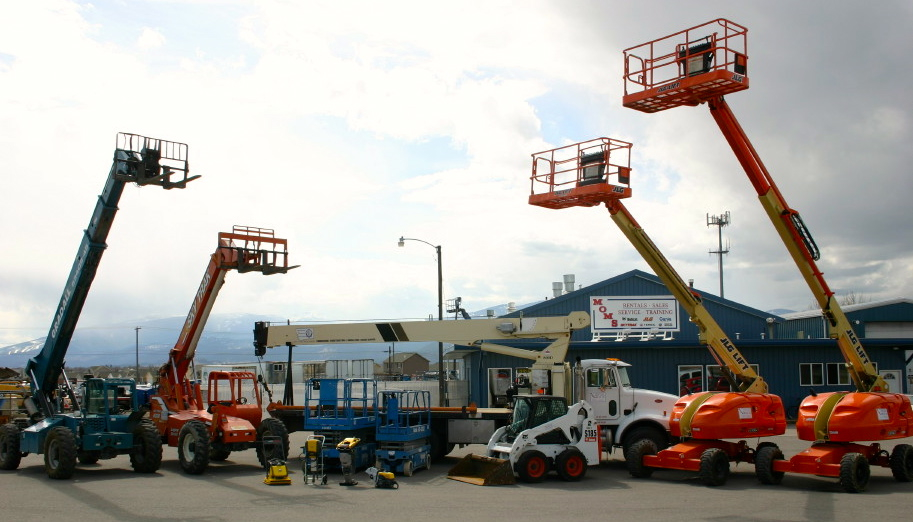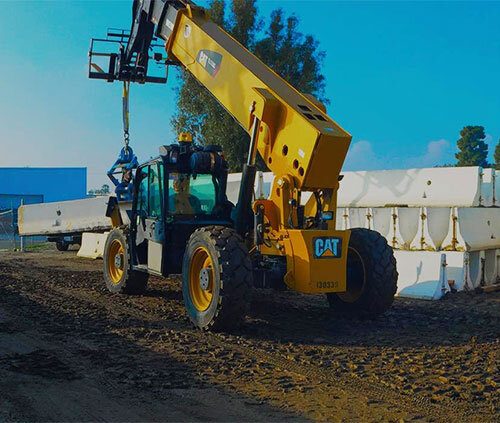Maximize Your Budget Plan by Comprehending the Expenses Related To Construction Devices Leasings
Comprehending the complete extent of expenses connected with construction tools rentals is critical for maximizing your spending plan. While the initial rental charge may appear simple, many added costs-- such as transport, fuel surcharges, and upkeep-- can swiftly collect, influencing your financial preparation. Being mindful of different charges and the ins and outs of rental contracts can aid stay clear of unforeseen economic burdens. What techniques can be utilized to efficiently handle these expenses and guarantee a much more efficient rental experience?
Introduction of Rental Costs
When taking into consideration building tools rentals, comprehending the associated prices is critical for efficient budgeting and project planning. Rental costs can differ dramatically based on a number of factors, including devices kind, duration of service, and location. The initial rental cost typically mirrors the devices's market demand and its connected operational capacities, influencing the total expenditure.
Along with the base rental rate, secondary costs might emerge, such as transport charges, gas surcharges, and upkeep charges. It is important to account for these extra expenses to properly analyze the total expense of renting equipment. The rental period can affect pricing; longer leasings might certify for reduced prices, while temporary rentals might sustain higher daily charges.

Break Down of Rental Rates
A detailed understanding of rental prices is important for service providers and task supervisors intending to maximize their budgets. Rental prices for construction tools commonly contain numerous components, consisting of base prices, time-based fees, and usage charges.
Base rates are the core costs connected with the service of the devices, often identified by the type and size of the machinery. These rates can vary dramatically, affected by elements such as equipment need, schedule, and regional market fads. Time-based fees, which may be daily, weekly, or monthly, serve to fit different task timelines and rental durations.
In addition, rental prices might consist of usage costs, which apply when equipment is utilized beyond a specified threshold, making sure that the rental company can make up deterioration. Seasonal demand fluctuations can also impact rental rates, with peak building periods normally regulating greater rates.
In addition, understanding the rental firm's plans pertaining to upkeep and insurance coverage can provide further understanding into the overall cost structure. By analyzing these parts, specialists can make informed decisions, guaranteeing the selection of rental tools straightens with both task demands and spending plan restrictions.
Extra Fees to Think About
Comprehending the details of additional charges is important for contractors to manage their total rental costs effectively. Beyond the basic rental prices, find more numerous supplemental fees can dramatically influence the complete expense of devices rental. These costs often consist of shipment and pick-up fees, which can vary based upon range and logistics associated with transporting the devices to and from the job website.
Moreover, some rental companies might enforce fuel additional charges if the equipment is returned with much less fuel than when rented out. It is also necessary to understand potential cleaning charges, especially for customized devices that needs extensive upkeep after use.

Thoroughly examining the rental contract and clearing up these extra costs ahead of time can help contractors avoid unanticipated costs and ensure that budget plans Learn More stay intact throughout the project lifecycle.
Upkeep and Repair Expenditures
Normal maintenance and repair service expenses are typically overlooked aspects that can considerably affect the general expense of building equipment rentals. When renting out tools, it is important to consider not only the rental fees yet also the prospective prices connected with keeping the equipment in optimum operating condition.
Lots of rental business include fundamental upkeep as component of the rental agreement; nonetheless, much more unexpected malfunctions or comprehensive repair services can result in added expenses. It's important to examine the rental agreement thoroughly to comprehend what maintenance solutions are covered and what obligations drop on the occupant.
Furthermore, devices that is not properly maintained can cause inadequacies at work site, possibly enhancing and triggering delays project expenses. To alleviate these risks, it is suggested to perform routine assessments and preserve open interaction with the rental provider pertaining to any type of concerns that occur during use.
Insurance Policy and Obligation Prices
Insurance coverage and responsibility prices are essential parts that can considerably affect the overall expenditure of building and construction equipment rentals (mini excavator rental). These expenses guarantee that both the rental business and the client are safeguarded from prospective monetary losses developing from accidents, damages, or burglary throughout construction forklift the rental duration

Additionally, customers ought to recognize any type of deductibles or exclusions in the insurance coverage, as these can impact possible out-of-pocket costs. Comprehending the terms of any insurance policy coverage is essential to prevent unexpected expenses. Ultimately, budgeting for insurance policy and responsibility expenses can help make certain a smoother rental experience and safeguard versus monetary threats connected with building and construction projects.
Final Thought
In conclusion, a comprehensive understanding of the prices connected with building and construction equipment services is vital for effective budget monitoring. By analyzing rental rates, extra fees, upkeep costs, and insurance coverage companies, people and demands can lessen unanticipated expenditures. This strategic technique not only boosts cost-effectiveness but likewise makes certain that tasks advance smoothly and efficiently. Inevitably, informed decision-making regarding devices services adds to the overall success of building and construction endeavors.
Rental expenses can vary dramatically based on a number of factors, consisting of devices kind, duration of rental, and location (dozer rental). The rental period can affect prices; longer services might certify for discounted rates, while short-term rentals could sustain greater day-to-day fees
By performing comprehensive research study and engaging with reliable rental business, professionals can successfully browse the intricacies of rental prices, inevitably optimizing their economic sources.
Beyond the common rental prices, different supplementary charges can dramatically affect the complete cost of tools rental. Rental companies typically give obligation insurance coverage that covers injuries to 3rd parties or damages to building, while devices damages insurance coverage can cover the price of fixings or substitute if the rented devices is harmed.